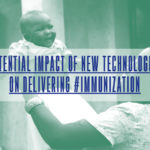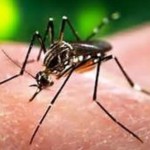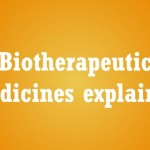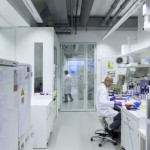Science Matters
Here we explore Takeda’s efforts to develop a Zika vaccine and the crucial role vaccine development programs play in tackling emerging diseases. Laurence De Moerlooze, Vice President & Global Lead Zika, Takeda Vaccines; Gary Dubin, Senior Vice President and Head of the Global Medical Office, Takeda Vaccines; and Rahul Singhvi, ...
Read More
Here we speak with Michaël Attlan, Head of the New Technologies (NT) Platform at Sanofi Pasteur, about how technology is transforming vaccine delivery. Prior to heading the NT Platform, Michaël led Sanofi Pasteur’s Traveler & Endemic Vaccine Franchise. His work in yellow fever, cholera, rabies, and Japanese encephalitis reflects his and ...
Read More
Help wanted in the fight against AMR: World Pharma Association wants to see incentives - but also more regulation This interview was first published on Medscape Deutschland Antibiotics resistance is a global problem. At the World Health Summit 2017 in Berlin experts issued an urgent call for new developments and ...
Read More
“This piece was posted as an exclusive for GEN” Vaccines are considered one of the most successful and cost-effective public health interventions, protecting us from many infectious and childhood diseases. In fact, over the past 50 years, vaccines have saved more lives worldwide than any other medical product or procedure. Being ...
Read More
It seems there is always a new story in the media about an emerging health threat. Right now, understandably, there is significant public concern about the spread of the Zika virus. But just over a year ago, it was the Ebola virus and its devastating impact in West Africa that ...
Read More
Biotherapeutics play an important role in modern medicine and have a profound impact on patients with serious diseases. A biotherapeutic is a medical product manufactured or extracted from biological sources. Composed of larger and more complex molecules than chemically-synthesized medicines, biotherapeutic medicines require sophisticated production and control processes in order ...
Read More
Genes. Chromosomes. Mutations. Today, these terms are as likely to be overheard in a casual dinner conversation as they are in scientific symposia and medical congresses. While the discovery of DNA dates back to 1869 when Swiss biochemist Johann Friedrich Miescher discovered nucleic acid, it was not until James Watson ...
Read More
Providing new therapies to patients living with unmet needs faster and more efficiently is an industry-wide challenge. A major key to improving the speed cost and quality of drug development is harnessing the insights of the customer – patients themselves. The traditional model of clinical development has looked at drug ...
Read More
The aims of the European Organisation for Research and Treatment of Cancer (EORTC) are to develop, conduct, coordinate, and stimulate translational and clinical research in Europe to improve the management of cancer and related problems by increasing survival but also patient quality of life. Extensive and comprehensive research in this ...
Read More
As a psychiatrist, I have long worked to address mental diseases such as schizophrenia and depression. Experiencing first-hand the suffering and heavy burden these ailments place on people motivated me early on in my career to better understand the underlying mechanisms of these diseases and to help find new treatment ...
Read More
Over 200 years ago, the first vaccine was created to protect against smallpox, an infectious disease that had afflicted humanity for centuries. That discovery opened the door to a golden period of vaccine development that has led to extraordinary improvements in worldwide public health. Today, vaccine development continues to thrive ...
Read More
Smart Testing in Personalised Healthcare – ctDNA is Set to Change the Companion Diagnostic Landscape
In the pursuit of truly personalised healthcare, AstraZeneca has entered into partnerships with Roche and QIAGEN for the clinical development of novel diagnostic tests based on circulating tumour DNA (ctDNA). These tests will move us to the next generation of companion diagnostics by allowing detection of recognised tumour mutations based on ...
Read More

















